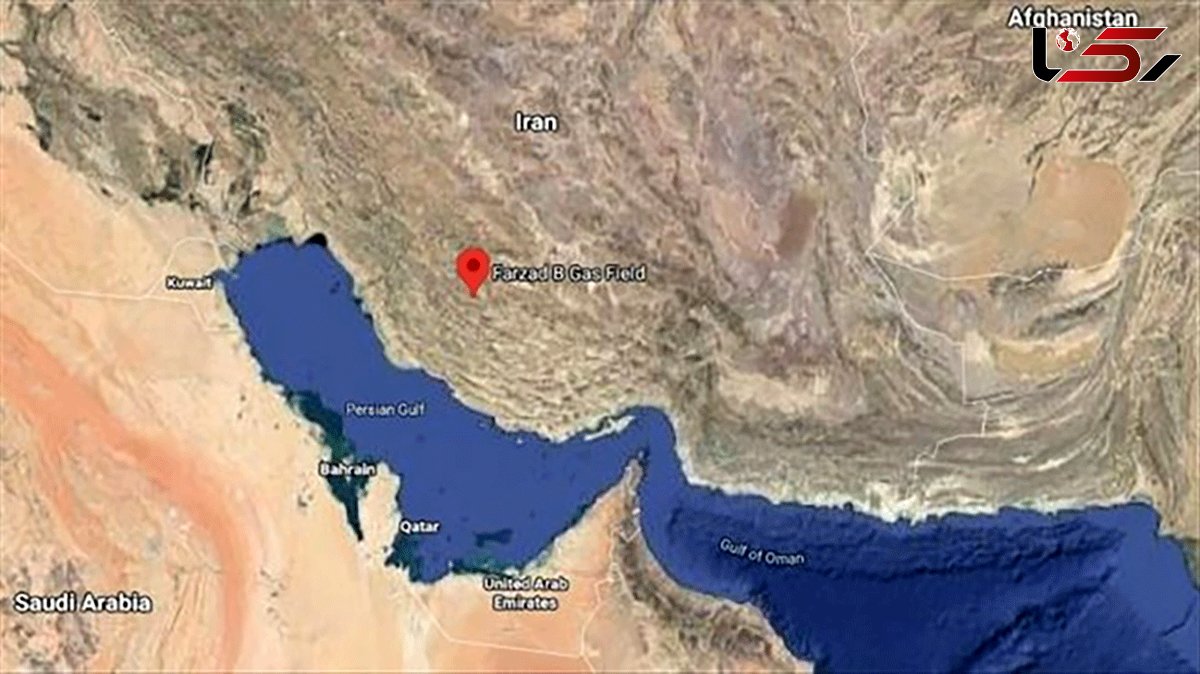India loses giant gas field in Iran: Government source
rokna: Iran has replaced India in the development of Farzad B gas field in the Persian Gulf, a highly-placed government source in Tehran told Anadolu Agency.

Iran has replaced India in the development of Farzad B gas field in the Persian Gulf, a highly-placed government source in Tehran told Anadolu Agency.
“We gave them multiple ultimatums, including last year, but probably they had no problem in losing the project, and being subservient to the US,” the source said, wishing anonymity.
Farzad B gas field was discovered by a consortium of three Indian companies ONGC Videsh Ltd. (OVL), Oil India Limited and Indian Oil Corporation in 2008 in the Farsi offshore block of the Persian Gulf. Tehran and New Delhi have since negotiated the terms of the field’s development for years.
The source said Iran had sent several invitations to India for negotiations on the project’s development.
“India should have responded to Iran’s invitation and given in writing their interest in the project,” the source said. “It appears they just wanted to buy time to see if the sanctions are lifted.”
Anadolu Agency had reported in July that India was set to lose the Farzad B gas field project after New Delhi kept postponing it due to US sanctions.
The report quoted officials of the National Iranian Oil Company (NIOC) saying that a local company had been roped in to develop the gas field, replacing OVL, the overseas investment arm of the Oil and Natural Gas Corp. (ONGC) of India.
Last month, Iran’s Oil Minister Bijan Namdar Zanganeh confirmed that the gas field will be developed without the Indian consortium.
“The first phase of Farzad B development, worth $2.2 billion, will be signed in near future,” he told the Iranian Parliament, without specifying an exact date and parties involved.
Lost opportunity
The giant gas field is estimated to possess 21.7 trillion cubic feet of gas reserves, 12.8 trillion cubic feet of natural gas and 212 million barrels of gas condensates.
“We offered them many concessions and waited for too long for them to join the project,” the source said. “But, it is clear that they don’t wish to antagonize their friends in US.”
According to the source, Iran issued its final ultimatum to India last year “because we could no longer wait for them to take a call”.
“We share gas fields (in the Persian Gulf) with other countries like Qatar and they have been doing the extraction for years,” the source said.
Without explicitly saying the door was shut for India in the project, the source said New Delhi had lost the opportunity as it was “fearful of US sanctions and its fallout”.
“We treated them as a priority because they had discovered the field, but we reserve the right to move ahead without them if they are not interested,” he said.
Despite the initial investment of around $100 million in the field, India later retreated due to US sanctions. However, the engagement continued for some years.
In September 2010, a master development plan (MDP) was submitted by the OVL to NIOC but the work didn’t commence due to the sanctions, according to a source familiar with the matter.
In 2012, Iran gave the first month-long ultimatum to India for carrying out development works at the field.
In September 2015, two months after the signing of the nuclear accord between Iran and world powers, OVL submitted a $10-billion proposal to the NIOC for developing the gas field. Things, however, fell apart again following the reinstatement of the US sanctions on Iran in May 2018 by the Donald Trump’s administration, the source said.
Around this time, Iran decided to amend the development plan and asked India to submit a revised proposal for the development of the gas field.
In May 2019, Zanganeh revealed that the NIOC had invited the Indian consortium led by OVL for negotiations on the project, as a final ultimatum.
“OVL has not yet responded to the invitation,” he said. “We are waiting and if they don’t come, local firms will take over the project.”
In August 2019, the NOIC head, Masoud Karbasian, said Iran has decided to proceed with another, local, operator for the project, implying that the Indian side had not responded favorably.
Toward the end of year, it was announced that the Iranian company Petropars had been awarded the contract to perform engineering design for the gas field in the first phase.
It is still not clear which company has been contracted to develop the field, but sources say it is most likely going to be an Iranian firm.

Send Comments